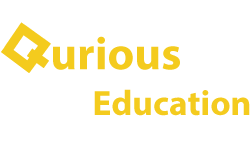

Economics Books to Read for Personal Statement

Need suggestions on Economics books to read for your personal statement? In fact, most students applying for a BSc. Economics degree course would mention a book. This article aims to do three things:
- Explore/suggest potential Economics books to read
- Discuss if it is necessary to read an Economics book
- Consider how one should include it in the Economics personal statement
If you are applying to study an Economics degree course, also be sure to check out our Economics Personal Statement Example , the BSc. Economics Entry Requirements Table for Top Universities and our article on Career Options for Economics Graduates .
Which Economics books should I consider reading?
There are numerous books on Economics out there. One useful way to decide which book to read is to separate them into two categories, which are interest-based books and academic-based books. Interest-based books are written to make the reader feel intrigued and provide a more casual/non-rigorous look into Economics (e.g. fun facts, interesting observations). Academic-based books are used to give a deeper understanding of the subject (e.g. books on Economic theory, university coursebooks, different schools of Economic thought).
As your personal statement should aim to be academic yet passionate, you may want to consider discussing an academic-based book in more depth, while briefly touching upon an interest-based book to show how your interest in the subject started. It is important to have a clear purpose when bringing up something you read, as you would want to demonstrate you have understood and explored the material fully. Below you can find the Amazon links to each book and their corresponding description on the product page so that you can decide whether it is in line with what you are looking for.
Interest-based Economics books to consider reading:
General Economics The books below tend to give an introduction into Economics and are great for casual reading. They include interesting insights into subject, and is good for those who have not studied the subject before. Note that Freakonomics and the Undercover Economist tend to be very popular among students, and that Freakonomics even had their own radio talk show at one time!
Behavioural Economics A relatively new field of Economics, Behavioural Economics tend to explore human psychology and decision making in the context of Economics and markets. It challenges the fundamental assumptions of Economics (e.g. people are rational and always aim to maximise their own utility) and can be very fascinating if that is up your alley.
Game Theory Game Theory studies the interaction between two or more players (e.g. companies) to maximise their pay-offs (e.g. profits) in a certain situation. For example, a firm may decide to raise their prices to maximise revenue but can be worse-off if their competitor does the same thing, and hence keeps the price constant. Fundamentally, this is expressed mathematically using matrices – if you are interested in the more academic parts then consider the last book in the list below. If not, the first two will suffice and the movie “ A Beautiful Mind ” is related to the discovery of the Economic theory too.
- Theory of Games and Economic Behavior
Academic-based Economics books to consider reading:
Introductory Economics Coursebooks These Economics Coursebooks are common textbooks for most undergraduate Economics courses, depending on the course lecturer. They are well known by university students and tutors which helps build fundamental knowledge of Economics for students before they move onto something more advanced. Note that the difficulty is far above A-Level and you are not expected to be familiar with these, although it can give you a head start and some idea as to what you can expect to study in your Economics degree.
Books by Great Economic Thinkers These are the key works published by various Economists throughout the ages and helped shaped Economic theory to what they are today. With different ideas and philosophies, the first book summarises the different Economic schools of thought nicely. Whereas, you may be interested in reading the individual works of each Economic thinker in particular if you are interested in say Keynes or Adam Smith.
Is it Necessary to Include a Book in my Personal Statement?
As you can imagine, most students applying to an Economics degree will mention a book they have read. It is the one of the easiest ways to show interest in the subject. Including a book is obviously not a requirement, and most students neglect other opportunities to find out more about the subject. For example, this can range from participating in Economics related events, studying a non-school course on the subject, or paying close attention to Economics news. These activities are likely to make you stand out more, than writing about a popular Economics book like numerous others. Doing a range of activities signals proactiveness and understanding of the subject through different perspectives. It can also help confirm your subject interest. If you are struggling to think of specific activities, why not ask our advisor for some suggestions?
How Should I Include a Book in my Personal Statement?
Including an Economics book in your personal statement can be difficult. You do not want to sound superficial or repeat what you have read. Instead, you should think about what you have gained from your reading. How has it triggered your interest to pursue the subject further? How does it connect with things you already learnt in Economics? What is your own perspective on what the writer mentioned? Expressing what you read in this way can help you stand out, as other students are unlikely to come up with the same answers.
Of course, all this is by no means easy. Having difficulty in discussing an Economics book you have read, or want a helpful eye on what you have written? Just reach out to our highly qualified Economics advisor , and we can help your personal statement go even further.
You may also like

UK LLB Law Entry Requirements
Are you choosing which UK university LLB Law course to apply to? Then this page will be very informative. The table below […]

Law Personal Statement Example
Applying to study a UK LLB Law degree but not sure how to approach your UCAS Law personal statement? On this page, […]

UK BSc. Economics Entry Requirements – 2020 Entry
Are you choosing which UK university BSc. Economics course to apply to? The table below shows BSc. Economics entry requirements for GCE […]

Economics Personal Statement Example
Applying to study a UK BSc. Economics degree but not sure how to approach your UCAS Economics personal statement? On this page, […]
Leave a comment Cancel reply
Your email address will not be published. Required fields are marked *
Save my name, email, and website in this browser for the next time I comment.
How to Write your Economics Personal Statement
Are you applying to economics courses at university this year? If so, this guide might come in handy. Based on my experience helping students with personal statements, as well as discussions with other Cambridge students and fellows, I have built up an understanding of what makes a very good economics personal statement. Below I present a series of steps for how to write the personal statement.

Decide on your course
It sounds obvious, but make sure you have decided on the courses which you would like to apply to. If you are unsure, you can consider your A-levels, particular interests, or whether you have a particular job in mind for after university.
From this point onwards, I will assume you are interested in applying for some kind of economics degree. However, the advice below generally applies to joint degrees and other courses however.
Supercurricular activities for economics
Given you have decided on the course for which you are applying, the next step I recommend is to write a list of all your supercurricular activities .
This is not the same as an extracurricular activity. You can think of the difference like this:
- A supercurricular activity is an activity that takes place outside of school lessons, that is directly related to your university course of choice. An example is reading an economics book.
- An extracurricular activity is, again, an activity that takes place outside of school, but that is not directly related to the course you are applying to study at university. An example of this is being part of a sports team.
Supercurricular activities should form the bulk of your personal statement. Some universities post recommendations such as 75 to 80% of the personal statement should be about supercurricular activities exclusively. Other universities will state that they are only interested in your academic pursuits (in other words, supercurriculars).
Complete Guide
For the complete economics personal statement guide, click the link here (paid resource):
Types of Supercurriculars
Supercurricular activities can include, but are not limited to:
- Online or in-person lectures.
- Magazines or journals.
- Online courses.
- Essay competitions.
- Reading blogs.
In a future blogpost, I will outline some examples for various areas of economics.
How should you choose your supercurriculars?
I recommend choosing activities based on your particular interests within the subject of economics. For example suppose you are interested in labour economics (in other words, what decides the wage and employment level in an economy or labour market). Then I would recommend finding activities relating to these topics. This could include entering an essay competition by writing on a labour economics topic such as migration, minimum wages or inequality, or searching in YouTube for lectures relating to migration (such as Alan Manning’s LSE lectures, for example here ). You may be able to find podcast episodes covering these particular topics.
Another example is let’s say you had an interest in environmental economics. Then you could look into a podcast episode on carbon taxes (for example here ). You could then look into books, blogs or online courses on the topic and so on.
One possible way to structure your personal statement is to have one paragraph for each topic area. You could have a paragraph discussing labour economics, then another discussing the economics of crime, and a third paragraph discussing macroeconomic policy as an example. However supercurricular activities may not naturally group into topics. So you can choose to link them together in other ways, such as the type of activity or a common skill the activities show.
Several economics courses are looking for you to be proficient in mathematics. Hence it may be worth devoting some part of the statement to discussing economics supercurriculars that relate to mathematics, covering areas such as the use of calculus in economics, statistics, econometrics, game theory and so on. Alternatively you could simply includes pure mathematics supercurricular activities such as maths challenges or reading.
Activities to avoid mentioning
Ideally you should avoid mentioning books where economics and popular culture overlap. This includes books like Freakonomics and the Armchair Economist for example. While these are very enjoyable books to read in their own right, these books are too frequently mentioned and are often seen as too basic by some universities.
If you are applying to a very competitive university that does not interview, for example LSE, then it would be preferable to find books that are less frequently mentioned.
Work experience is not necessary for an application to an economics course. This is because work experience is often acquired through connections rather than ability, so it would be a poor indicator for admissions staff to use in assessing students’ abilities. Also work experience is often not directly relevant to the economics course. However work experience can be mentioned if you work on something that is relevant to the economics course, such as working as a research assistant or an economics journalist.
Generally you should not be mentioning your A-levels. Almost everybody applying is doing A-levels and so speaking about what you have covered in your A-levels will not help you to stand out. In any case your teachers will be mentioning your A-levels in your teacher reference anyway, so it is better to devote the personal statement to activities beyond your A-levels. If there are one or two relevant ideas from A-level that you really want to mention, as they are very relevant, then you can do so. But I would not recommend devoting a whole paragraph to your A-levels for example.
I have my supercurriculars. What next?
Suppose now you have your list of supercurricular activities. You can use these to form the main body of your personal statement.
For these activities, as above, group them into particular paragraphs. This grouping could be based on the topic of the supercurricular activities. You could aim for 2-4 activities per paragraph.
To discuss each activity I recommend three steps:
- Name the activity. For example name the book you read or name the essay competition title.
- Discuss what you specifically did. For example what did you write about specifically in your essay competition, or what was involved in your online course?
- Explain your personal takeaway. Did you agree with the book? Or did you find something particularly fascinating about the essay competition?
Note this is just one possible way of doing things. Depending on the activity you are discussing, you may find a different structure appropriate.
Between activities and paragraphs, it is often a good idea to try to create linking clauses. For example if you discussed your mathematical ability in one paragraph, then you could easily transition into discussing the use of statistics in economics in your next activity or paragraph.
I plan to expand more on how to write about your activities in a future article.
Other Paragraphs
I will now pay particular attention to other paragraphs you may need to write.
Introductions
Often students spend too much time trying to write a good introduction at the very start of the writing process. I recommend leaving the introduction until you have been writing about your supercurricular activities.
One mistake when writing introductions is to start with “from a young age” or “since I was five….”. This way of starting your statement is far too common.
Instead you could jump into discussion of a particular supercurricular activity. This could be an activity that summarises well why you want to study economics for example. You might also have supercurricular activities that do not fit well into a particular paragraph. The introduction could provide a good place to put those kinds of activities too.
Extracurricular Activities
It is possible to put a small paragraph in the statement discussing your extracurriculars (in other words activities not related to economics), for example sports teams, societies, positions of responsibilities, other hobbies etc. Some universities will want to see you are well rounded candidate while others will only care about your academics. I recommend inspecting the applications pages of the universities you are applying to, in order to verify the importance of extracurricular activities to the universities you are applying to.
You may wish to round off your personal statement with a few concluding sentences. I have seen this done in a few ways:
- A short sentence summarising why you think you would be a good candidate for the course.
- A couple of sentences discussing the most important part of your application or something you want to emphasise. This could be a research interest in a particular area, or a particular strength within the field.
- Alternatively, if you think there is a common idea linking most or all of your personal statement activities, you could mention it here too.
See if you think any of these ways are appropriate for your statement. Alternatively you could find your own way to conclude.
Checking and Revising
Get your statement checked by multiple people. Also different teachers will give different advice, so do not feel like you have to accept one’s person entire advice (including my own advice). After all, this is your personal statement and nobody else’s.
In revising the statement, one process most students go through is cutting down characters to fit the UCAS character and line count limits. If you are exceeding these limits, see if you can make points more succinctly. Often a second pair of eyes is very helpful in this instance. Beyond that, you may have to choose one or two of your activities to leave out, based on which you think offers least value to your personal statement.
Best of luck in writing your statement. More will follow on specific ideas for economics supercurricular activities.
Recent Posts
- 25 Marker Model Answer in style of Edexcel Economics A [Monopoly]
- 3.4.4 Oligopoly – Edexcel Economics A notes
- 3.1.2 Business growth – Edexcel Economics A Notes
- 3.1.1 Sizes and Types of Firms – Edexcel Economics Notes
- 3.4.7 Contestability – Edexcel Economics A notes
